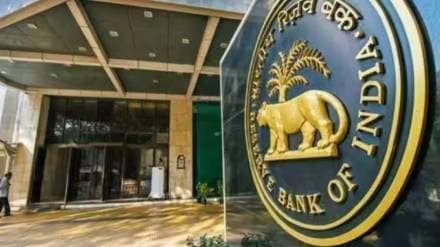Reserve Bank of India (RBI) Governor Shaktikanta Das seldom gives cryptic replies. But at the World Economic Forum in Davos earlier this year, his first response to a query on the future of cryptocurrency in India was exactly that — “very bad”. Just days after the US Securities and Exchange Commission (US SEC) approved bitcoin exchange-traded funds, the governor said, “they (the US SEC) are responsible for their nation’s well-being, and we for ours.” The RBI has time and again stuck to its stand against cryptocurrencies, saying they could lead to tax evasion, decentralised peer-to-peer (P2P) activities and loss of “seigniorage” income — the profit earned by a central bank from money creation. Of course, it has also red-flagged “terrorism funding” and “money laundering” risks in the past — all risks to fiscal stability. The point the central bank has perhaps missed is that such things can happen through all asset classes.
Against this backdrop, a report suggesting that the Securities and Exchange Board of India (Sebi) has recommended to a government panel that cryptocurrencies should be regulated through multiple regulators is an interesting development. It also comes at a time when Sebi chairperson Madhabi Puri Buch has been pushing for T+0 settlement in the domestic market and has said that there is a good chance that funds will move away from the regulated markets towards crypto and similar assets, if bourses don’t move towards instantaneous settlement. Sebi’s argument is that cross-border asset classes that operate outside regulated markets have the advantage of anonymity, tokenisation, and instantaneous settlement, and it is possible to offer the last two to investors. The market watchdog sees itself as the regulator of cryptocurrencies in the form of securities, initial coin offerings (ICOs), and also issue licences for equity market-related products — quite similar to what the US SEC does by monitoring tokens which are like securities and exchanges. It has also recommended that grievances of investors in cryptocurrencies should be resolved under India’s Consumer Protection Act.
Both Sebi and RBI’s arguments have their own merits. For the government, the choice is between accepting that cryptocurrencies are a reality or completely ignoring it because of the “fear of the unknown”. At present, the RBI’s tough stance seems to have rubbed off on the Indian government. Its initial efforts seem to be more towards curbing the enthusiasm. It has imposed a 30% tax plus surcharge on capital gains. It also does not allow any offsetting of capital gains against losses, which is allowed for other asset classes. Then, there is a 1% TDS (tax deducted at source) on the entire sale amount, irrespective of profit or loss.
But recent numbers show that the interest is far from waning. According to reports, there are over 20 million crypto investors in India. To put these numbers in perspective, there are 22 million taxpayers in India (88 million file taxes) and around 150 demat accounts (though there will be a lot of double counting). The more interesting part is that the age of around 80% of investors is 20-35 years, and 50% have incomes less than `5 lakh annually. Clearly, cryptocurrencies have caught the fancy of many youngsters. It’s thus clear that the government cannot afford to ignore cryptocurrencies for too long. A good start would be to let Sebi oversee the securities, exchange and ICO segments, and decide on the way forward based on this experience.
